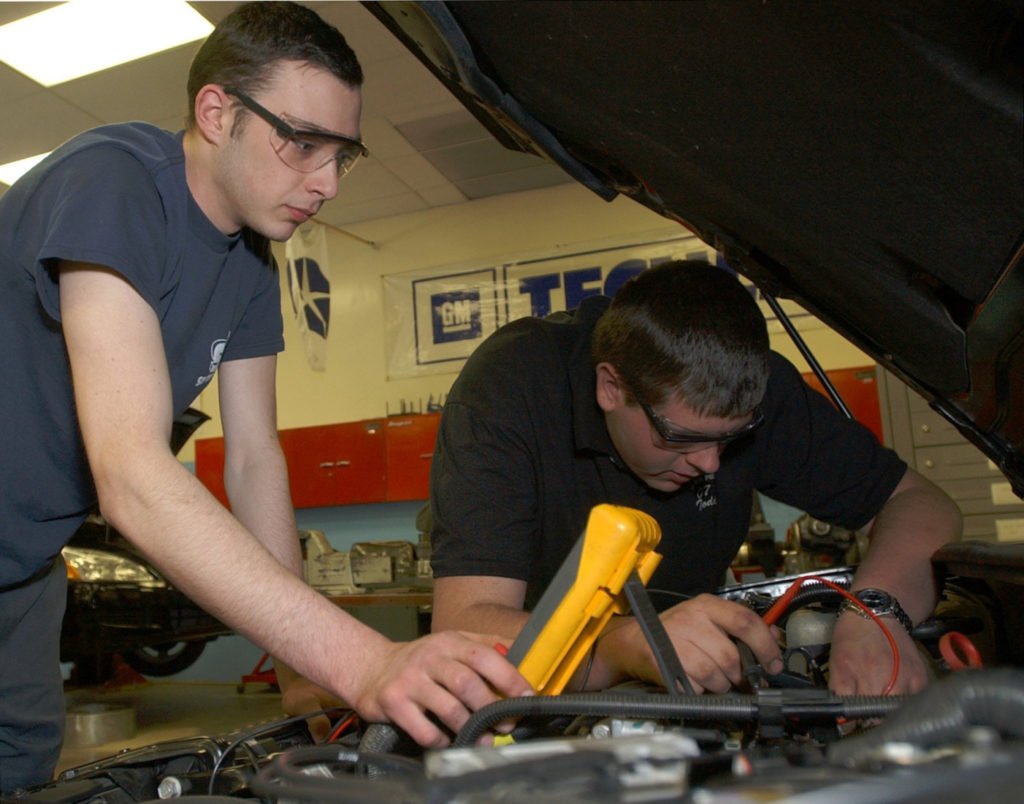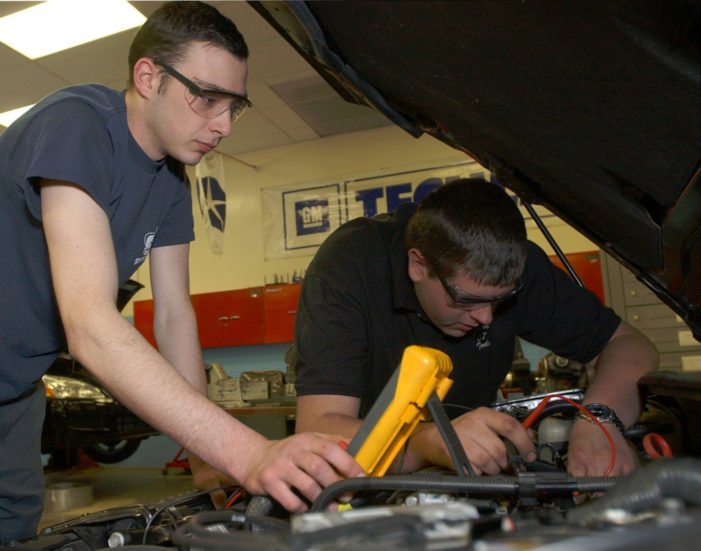
By David McGrath,
No answer. He was shaking.
OPINION
Having been a teacher for over three decades, I’ve encountered students in distress. Once, I had to make a referral for domestic abuse. Another time, I had to drop a student after he kept arriving inebriated.
William, it appeared, was in some kind of pain.
“Would you like me to call the school nurse?” I asked.
In the past decade, I’ve dealt with immaturity issues with students as young as 16 because of dual enrollment, a program which allows high schoolers to sign up for college classes to get a head start and save on tuition. But William looked to be about 19, average for a college freshman.
Finally, when I insisted he speak to me so that I would know how to help him, he reluctantly lifted his head.
“I can’t do this,” he said. No tears, but his eyes were red, his face a coil of hurt. “Too much pressure.”
Further questioning, and I learned that his anxiety made today’s lab assignment impossible. Nor had he been able to complete last week’s homework.
Exacerbating everything else was the D he received on a paper I had given him back at the start of class, leading him to fear that he was going to fail and become a “huge disappointment” to his family.
I tried cheering him up by explaining that it was early in the term, when many of his classmates also get low grades, which was why the class was required in the first place: to learn and improve. It was feasible, I assured him, that he could still end up with a good grade by semester’s end.
It’s a speech I’d given before. But William would have none of it. He was feeling too terrible in the here and now, he said. Not only that, he never even wanted to go to college. There had been all these expectations: It was either college or nothing.
Back when I began teaching, I seldom saw the students who were uninterested in the academic journey for a four-year degree. For they were the ones who had acquired internships, started apprenticeships or took jobs in industry and manufacturing, as the culmination of vocational education programs in high school.
But these days I’m seeing more students with William’s dilemma, who are funneled to my classroom for lack of better options.
They are told by their high school counselors that they will not get a decent job without a college degree. And that high school qualifies them only for a low-wage job in the fast-food industry.
Parents have been even more sensitive to the counselors’ warnings. So even when students found they enjoyed working in the building trades or had a knack, say, for auto repair, their parents saw vocational education as a dumping ground for below-average children: Not my child!
Consequently, a report by National Assessment of Vocational Education has shown a steady decline of enrollment in vocational education, with corresponding cuts in federal funding in the last 11 years.
In Chicago schools, vocational classes have been severely reduced and schools and programs entirely dismantled over the past two decades. This is bad news for students like William and bad news for the city as it competes for Amazon’s new headquarters, which comes with 50,000 jobs, many requiring not college degrees but vocational education.
According to the U.S. Bureau of Labor Statistics, 68 percent of high school graduates go to college. This means that absent vocational training, 32 percent of our young people are unqualified for a job with which they can lift themselves out of poverty.
Of those who do go to college, 40 percent never finish, including William, who dropped before the end of the semester.
How to solve this problem?
We need to debunk the inference made by parents that vocational and technical jobs are inferior. Such a notion has led many of them to steer youngsters unwilling or unsuited for academic study into frustration, failure and depression.
A campaign of public relations, parental education and cash is needed to combat the stigma.
Yes: cash incentives in the form of higher salaries for auto mechanics, veterinary technicians, medical assistants, insurance agents, MRI technologists, physical therapist aides, railroad equipment operators, choreographers and the multitude of other occupations that do not require college but that need to be filled in this country.
Cash such as the $44,000 starting salary for thousands of construction workers that will be hired to build Amazon’s new headquarters, who will require training either on the job or in the kinds of vocational education programs we need to resurrect.
David McGrath is emeritus English professor at the College of DuPage and author of “The Territory.”
Source: https://chicago.suntimes.com
Disclaimer: We at Prepare for Change (PFC) bring you information that is not offered by the mainstream news, and therefore may seem controversial. The opinions, views, statements, and/or information we present are not necessarily promoted, endorsed, espoused, or agreed to by Prepare for Change, its leadership Council, members, those who work with PFC, or those who read its content. However, they are hopefully provocative. Please use discernment! Use logical thinking, your own intuition and your own connection with Source, Spirit and Natural Laws to help you determine what is true and what is not. By sharing information and seeding dialogue, it is our goal to raise consciousness and awareness of higher truths to free us from enslavement of the matrix in this material realm.
 EN
EN FR
FR



























If there are no young people interested in Trades like metal fabrication/welding, Plumbing, Electrical work etc who will do those jobs?
The average person working in those trades is 35-50.
I listen to local talk radio and a man who owns an electrical company is desperate for young apprentices. He pays well, offers benefits and pays for your certification. These trades pay well and are in high demand.
Seems like a no brainier to me.
Like this article clearly points out, not everyone is college material and IMHO college is not the best way to go. Unless you want a sub par education coupled with extreme debt.
Vocational training is fine, but isn’t going to get us too far if we don’t return to the days of organizations at least pretending to have a commitment to their employees. When a new MRI machine comes through the door that can be operated by a lower-skilled new vocational school graduate, I have a pretty good idea what will happen to the current 40 year old MRI tech with a higher salary.
I’ve seen skilled workers replaced by automation and other forms of technology that multiplies work output on a per-worker basis. Telling them it’s just the invisible hand of the market voting on their skills isn’t a humane thing to do.
Hi I just read perpective sur la nouvelle realité ! I was very surprise by all the knowledge that you gave , I know 90 % of all this but never say other knowing all this , l pass last november with Hopi and navaro and have some experience of past life too , I also say few ufo and 3 just last month . I tell you this because i am very happy to read all this in one message ,so thank you because even i know many ,i do not know when real change will occur and became very upset to waite so long to see real action because it is hard to know all this and live in the slave mode here 🙂